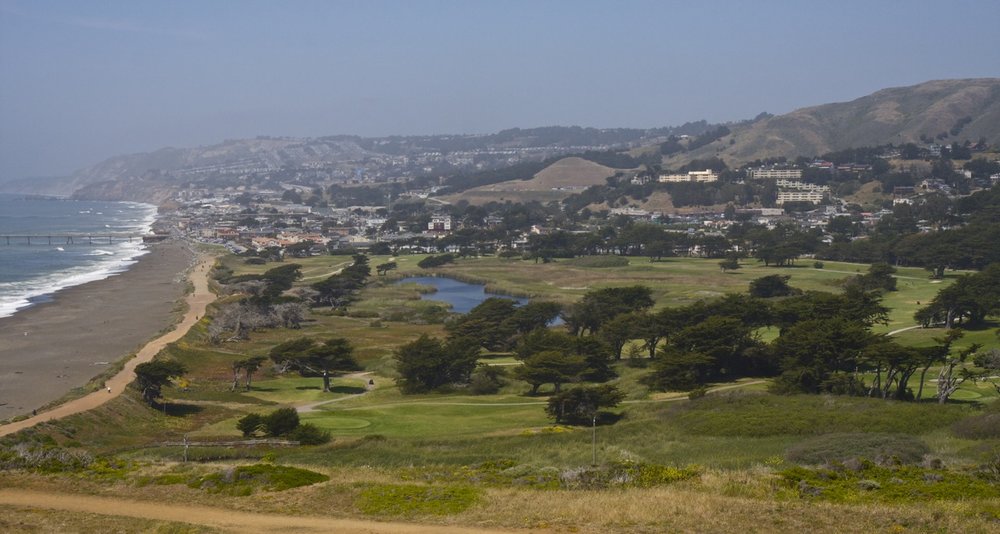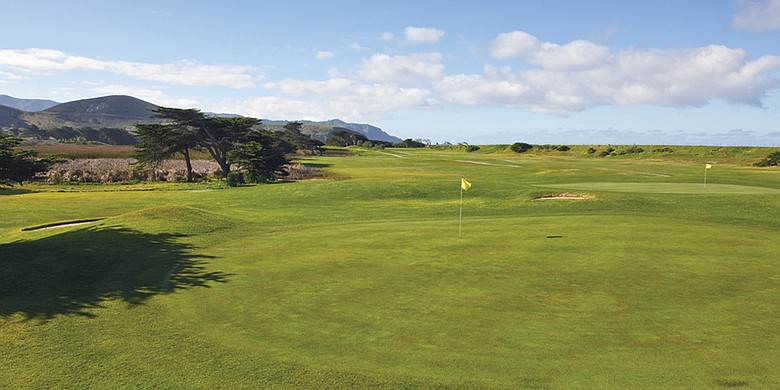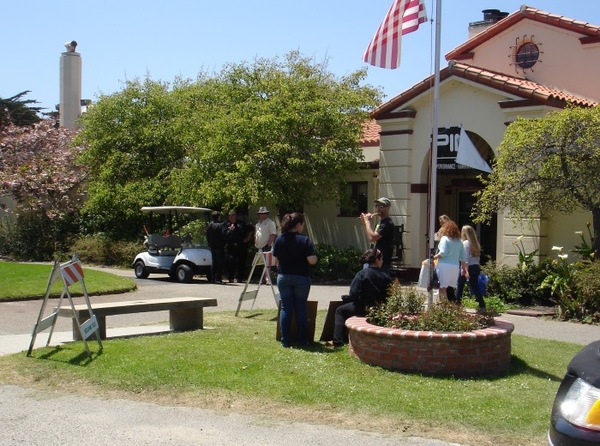Eight Years! Sharp Park Finally Gets Long Term Reprieve, Chance For MacKenzie Restoration
/We've been following this saga way too long but huge credit to Richard Harris and Bo Links for nearly a decade of battling to save Alister MacKenzie's Sharp Park design. After essentially facing the same foe--Brent Plater of Wild Equity--the San Francisco Board of Supervisors finally included the course as part of a natural resources plan that will ensure its long term prospects.
 A WPA project designed by MacKenzie and Pebble Beach remodeler Chandler Egan, the run-down public course still sports a vibrant and diverse golf scene. With some love and money, it could be one of America's best public golf facilities.
A WPA project designed by MacKenzie and Pebble Beach remodeler Chandler Egan, the run-down public course still sports a vibrant and diverse golf scene. With some love and money, it could be one of America's best public golf facilities.
The full press release announcing what appears to be the (merciful) end to this saga.
FOR IMMEDIATE RELEASE
March 6, 2017
SHARP PARK PLAN MOVES FORWARD
Historic “Working-man’s golf course” to Remain Open with SF Supervisors’ Support
SAN FRANCISCO, CA – After eight years of non-stop political battles, efforts to preserve the historic Sharp Park Golf Course have received a long-term commitment from the San Francisco Board of Supervisors.
By a 9-1 vote on Tuesday, Feb. 28, the Supervisors certified a Final Environmental Report for a Sharp Park Restoration Plan that recognizes the historical significance of the 85-year old links designed by Alister MacKenzie, one of world’s most famous golf course architects. Specifically, the Supervisors:
- · Approved the continued operation of the 18-hole public course, owned by San Francisco but located in its beachside suburb of Pacifica;
- · Designated the seaside links as “Historic Resource Property” under the California Environmental Quality Act; and
- · Allowed modification of three holes along the margins of Laguna Salada, a freshwater marsh in the center of the course, to enhance habitat for the endangered San Francisco garter snake and the protected California red-legged frog, on condition that the changes be consistent with the golf course’s historic architectural character.
A handful of environmentalist groups, including Wild Equity Institute, the San Francisco chapter of the Sierra Club, Surfrider Foundation, a couple of local Audubon societies, National Parks Conservation Association, and, for a while, Center for Biological Diversity, had for years opposed San Francisco’s Sharp Park Plan. They had demanded closure of the course to protect the frogs and snakes, but since 2009 these opponents had lost a series of fights over the golf course in San Francisco city agencies and before the California Coastal Commission, US Fish & Wildlife Service, and other state and federal resources agencies. In 2012 and again in 2015, four different state and federal courts dismissed lawsuits from the activist groups. They lost at every turn.
The California Coastal Conservancy and several resources agency and court decisions noted that construction of the golf course in the early 1930’s severed connection between the Pacific Ocean and Laguna Salada, thereby converting what had been a brackish marsh into suitable habitat for the freshwater frogs and snakes, which were first found at Sharp Park in 1946, 14 years after the course was opened. In a 2015 decision in favor of San Francisco’s Sharp Park plans, the Coastal Commission emphasized the importance of balancing the historic public recreation value of the golf course with the need to protect endangered species.
On its Feb. 28 agenda, the SF Board of Supervisors was scheduled to hear yet another appeal, from the same environmentalist groups, challenging December 2016 decisions by the San Francisco Planning and Recreation & Park Commissions certifying a Final EIR and adopting the Sharp Park Restoration Plan as part of the Rec & Park Department’s comprehensive San Francisco Natural Areas Plan. But when it came time for the anti-golf appellants to put on their case, their attorney Michael Lozeau dramatically announced his clients were withdrawing their appeal, in consideration for a minor Rec & Park concession on the placement of dredging spoils.
At that point, 50-plus San Francisco Public Golf Alliance members who came to City Hall to testify – working men and women, retirees, and students from across San Francisco’s broad ethnic and social spectrum – happily went home. During the two weeks before the hearing, the golfers submitted over 1,000 e-mails and mostly-hand-signed letters, pleading the case for their beloved Sharp Park.
The golfers’ message resonated with the Supervisors. Voting with the 9-1 majority to certify the Natural Areas Plan Final EIR, Supervisor Ahsha Safai – whose southern San Francisco district is near Sharp Park – noted “the irony of it all . . . that we have an existing working-man’s golf course . . . designed by a Scottish immigrant . . . that would be restored . . . that would then in the end be the reason why we have the opportunity to protect two of the most endangered species in Northern California. That’s one irony that shouldn’t be lost.”
Thanks to the Supervisors’ vote, neither the irony nor the golf course will be lost.
“There’s still a lot of work to be done to restore MacKenzie’s masterpiece at Sharp Park,” concluded Golf Alliance co-founder Bo Links, “but now the wind is at our back.”















